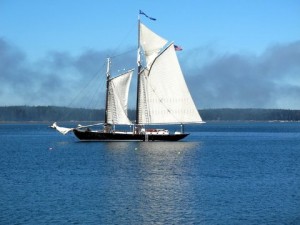Baby boomer travel
I have a soft spot for Detroit, one of the nation’s most iconic cities — just say the name, and you think of automobiles, Motown, and now — well, we’ll get to that in a minute.
I was born in nearby Ann Arbor, went to college at the University of Michigan there, and during that time attended a number of sporting events in Detroit, especially Detroit Tiger games at grand old Tiger Stadium, since replaced by a new ballpark. I’ve been a rabid Tiger fan since I was 15, and, like many baby boomers, the great Motown music of the Supremes, the Temptations, Marvin Gaye and other artists helped form the soundtrack of my youth.
As a kid growing up in Indiana, my family would make periodic trips to Detroit to visit relatives. At the time,… Continue reading

The JW Marriott Miami, one of 63 current representatives of the brand. Photo from JW Marriott Miami.
Like every other business these days, it seems, the hotel business is all about branding — the art of distinguishing your hotels from those of other brands.
Every lodging chain from Motel 6 to W Hotels has a brand, and a target customer they believe will respond to that brand. Motel 6 appeals to budget road travelers who apparently arrive late at night. W Hotels appeal to affluent younger arty types, who don’t mind paying big bucks for cool but cramped quarters. Not many Motel 6’ers are going to stay in W’s, and not many W aficionados are going to bed down at Motel 6, no matter how late they leave the light on for ya.
As JW Marriott’s global brand manager Mitzi Gaskins told the travel trade site Skift.com in a recent… Continue reading
The Aranui 3 journeys through the remote Marquesas Islands. Photo by Clark Norton
We all know the feeling of looking forward to a particular trip for weeks, months — sometimes even years if we have to save enough money or find the time to do it.
And then the trip takes place. And then, all too soon, it’s over.
What now?
You might feel a natural letdown, at least for a while. But then memory sets in.
Whether or not those memories are good, bad or indifferent will probably spell the difference between whether or not you’ll return to that destination, lodging, or cruise line; or recommend to or warn against taking a similar trip to your family and friends; or take another tour with the same operator or decide to look elsewhere next time.
For baby boomer travelers, memories are perhaps even more important than for younger… Continue reading
Aroma Thyme’s lamb burger with vegetables on the side. Photo from Aroma Thyme Bistro.
My first encounter with Aroma Thyme Bistro, located in the town of Ellenville in New York’s Hudson Valley, was at a fundraiser for our local public radio station. Called Foodstock because of its proximity to the original Woodstock concert site, the event brought together restaurants from around the region to give out free samples (once you paid your way in) and perhaps lure you to come dine with them in the future.
Aroma Thyme Bistro stood out for two reasons.
First, they didn’t just hand out any old samples. They handed out samples of one of the two most expensive items on their menu, rare sesame crusted albacore tuna with Sriracha and peanut glaze. It was so good I came around twice, hoping they wouldn’t recognize me from the first time.
Second, they gave out free… Continue reading

The SpareFoot logo. Courtesy of SpareFoot.
I’m not at all sure what self-storage units have to do with boomer boom towns.
But as I wrote in my previous post, it was the blog on the website of SpareFoot — an online site to find and reserve storage units across the country — where I learned what the top 15 Boomer boom towns in the U.S. are, at least by Sparefoot’s calculations. (San Antonio, Texas, tops their list, which is based on several criteria, including boomer population growth, number of health care workers, and some economic data.)
And that’s what I like about the SpareFoot blog — it’s filled with some entertaining, educational and unexpected surprises. Some of which are related to baby boomer travel.
For instance, besides the boomer boom towns entry, there’s one post naming the fastest-growing college towns in the U.S. based on population growth… Continue reading

Riverwalk is at its most colorful at night. Photo from Visit San Antonio.
A short while ago a website called SpareFoot — which helps users find good self-storage units but features a very interesting blog filled with de-cluttering tips and other useful info — compiled a list of what they called “America’s 15 Baby Boomer Boom Towns.”
I guess baby boomers are among the biggest users of self-storage units — to which I myself plead guilty over the years, having archived dozens of boxes representing a massive paper trail of my career (I’m currently in rehab on this addiction). But in any event, SpareFoot put some work into this project and identified 15 of the 100 most populated metropolitan areas in the U.S. that were attracting new boomer residents and some of the reasons why (the title should really read “boom cities,” but we’ll stick with “boom towns” as the… Continue reading
In my previous post, I contrasted my list of “must-see” sites around the world with that of Patricia Schultz, author of the best selling bucket list guidebook, “1000 Places to See Before You Die.”
With an eye specifically on baby boomers, and without wanting to be too grim about it, I wanted to accentuate places that are themselves at least somewhat in danger of dying or being considerably altered in coming years, for a variety of reasons.
So far, we’ve covered five regions of the globe — Europe, Africa, the Middle East, Asia and Australia/New Zealand/Pacific Islands. Now let’s tackle the U.S./Canada, Latin America, and the Caribbean area.
U.S./Canada: There are so many possibilities in North America, but I’ll pick Yellowstone National Park in Wyoming/Montana over Schultz’s Monument Valley.
Yellowstone is not only a remarkably diverse collection of sights — from… Continue reading
Utah’s Monument Valley, author Patricia Schultz’s absolute must-see sight for North America. Photo from Utah Tourism.
I just read an interview with Patricia Schultz, author of the extremely successful travel guide “1000 Places to See Before You Die,” whose first edition publication in 2003 presaged the bucket list craze.
She has since published a second edition, which includes another 200 entries, so if you’ve somehow managed to see the initial 1,000, you still have your work cut out for you.
Depending on how much travel baby boomers — the youngest of whom turn 50 this year — have done earlier in their lives, they face a daunting task of keeping up with Schultz, who says in the interview that she has now visited all the places she’s written about, though when the first edition was published, there were about… Continue reading

Victoria Falls at dawn — an unforgettable image. Photo by D.E. Cox, two-time Society of American Travel Writers photographer of the year.
In my travel writing for magazines, I confess I’ve sometimes felt like my words were there more to frame the pictures than to tell the story.
National Geographic Magazine, I’m told, always starts with a portfolio of superb photographs on a topic, and then builds a story around them, rather than have story ideas drive the decisions.
As I noted in a recent post, words — or content as they are now known on the Web — are crucial for conveying information and are the ultimate reason why most people go to a travel website.
But it’s the visual images — if done well — that become seared in our brains and very possibly lead us to choose one destination over another, even if only subconsciously.… Continue reading

Travel websites should seek to flow like this Maine Windjammer in Penobscot Bay, seamlessly and effortlessly. Photo by Clark Norton
I recently read a statistic that unless a website loads within six seconds, the majority of users will give up and go elsewhere. Whether completely true or not, it speaks of our collective impatience when we can’t have our way instantaneously on the Internet.
My frustrations with websites — and travel websites, in particular, since I spend so much time on them — come when I can’t find what I’m looking for after not just six seconds, but sometimes minutes and what seems like hours. Or I never find what I’m looking for at all after exhausting every possible avenue I can think of.
How tough can it be to make it easy for your potential visitors or customers (depending upon whether or not you’re marketing a destination or travel-related… Continue reading













